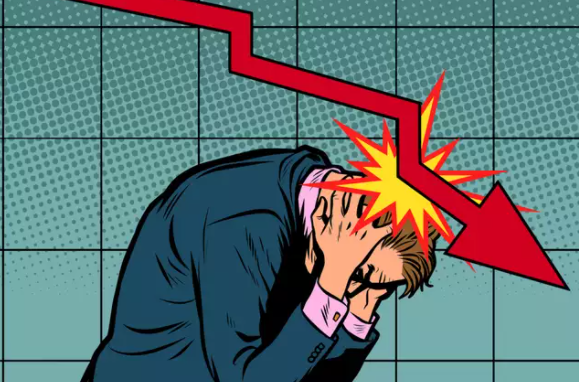Virendra Pandit
New Delhi: Amid concerns of possible stagflation—a stagnant economy plagued with inflation—India braced on Monday for fresh challenges to its post-pandemic recovery process as its rupee tumbled to a record low along with stocks and bonds as a spike in global crude prices spurred by the Russian-Ukraine war threatened to inflate the nation’s oil-import bill and fan inflationary pressures.
The rupee declined over 1 percent, by 84 paise, to Rs.77.01 per dollar, past its previous low of 76.90. The benchmark government bond yields rose six basis points to 6.87 percent, while the S&P BSE Sensex Index fell 2.74 percent or 1,491 points, to 52,843, the lowest since July 2021.
With Brent Crude trading around USD 130 a barrel and global market sell-off, the benchmark indices tumbled 3.5 percent in late noon deals on Monday, the media reported.
The key benchmark indices plunged sharply in trades, taking cues from the Asian counterparts and SGX Nifty. Investors are worried about higher inflation and steeper rate hikes soon as a fallout to the sharp rally in crude oil prices, the reports said.
As of Monday, the BSE Sensex and Nifty 50 had shaved off 15 percent from their respective historic highs. The all-time high for Sensex was 62,245 and for Nifty 50 18,604, both in October 2021.
On Monday, the BSE Sensex and the Nifty50 indices tumbled, respectively, to around 52,800 and 15,863 levels.
They spread the losses across the broader markets with the BSE MidCap and SmallCap indices slipping 3 percent each.
Monday’s move turned the Indian rupee into Asia’s worst performer this year as surging crude prices fueled worries about the country’s balance of payments. India imports nearly three-fourths of its oil, making it one of the most vulnerable in Asia to higher prices.
India’s benchmark equity index dropped to its lowest level in over seven months, with most of the 30 stocks of the S&P BSE Sensex trading in the red.
“Geopolitical risks may stay elevated, especially on the terms of trade shock and current-account deficit (CAD) implications,” Barclays Plc. Analysts, including Ashish Agrawal, said. “The INR is more sensitive to supply-side oil shocks,” he said, adding that the central bank (Reserve Bank of India) is likely to continue selling US dollars passively, but may not defend any particular level.
Foreign funds have taken out about USD 16 billion from India’s equity markets since September 2021.
The forthcoming IPO of Life Insurance Corporation, widely referred to as India’s Aramco moment, may also be deferred because of volatile geopolitical conditions. Traders were expecting USD 5-USD 6 billion of inflows from the LIC share sale, which would have provided some support to the falling currency.

